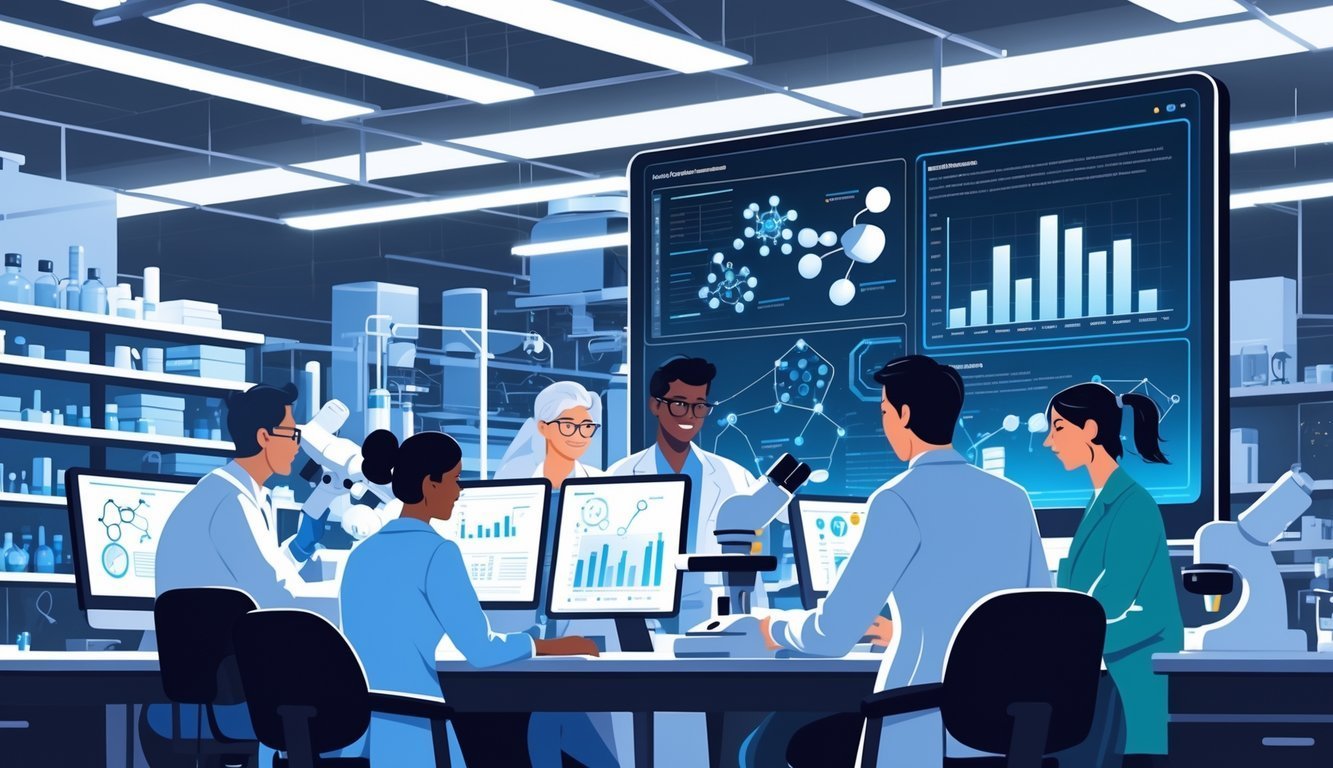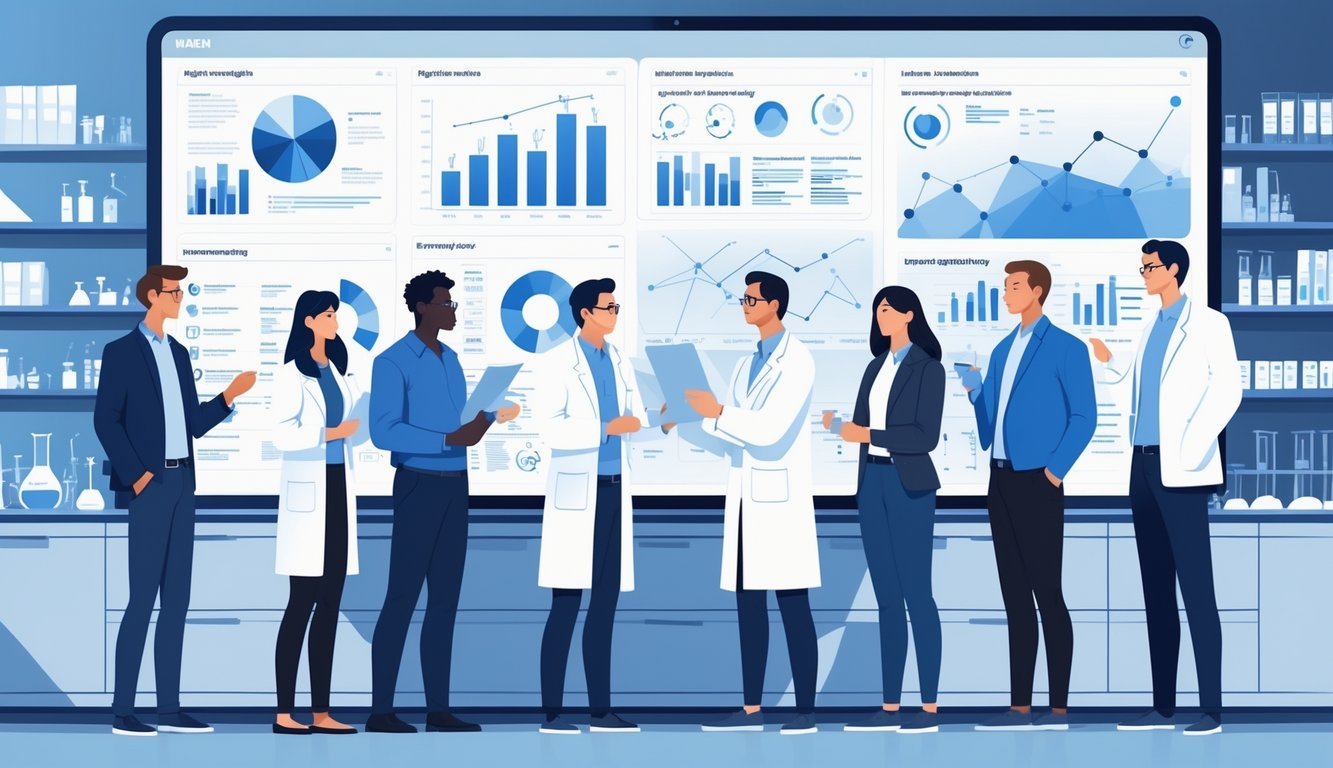PsychNewsDaily Publishers
100 Summit Drive
Burlington, MA, 01803
Telephone: (320) 349-2484
PsychNewsDaily Publishers
100 Summit Drive
Burlington, MA, 01803
Telephone: (320) 349-2484
Recent research indicates that small lifestyle changes significantly enhance well-being, reduce chronic disease risk, and promote longevity through improved dietary and exercise habits.

Fresh research sometimes turns up insights that really make you rethink your daily habits. A recent study suggests that simple lifestyle choices might have a bigger impact on your well-being than you’d expect.
One key finding? Some daily behaviors could actually help you live longer and feel better.
Researchers took a close look at how specific factors shape your long-term health. They point out practical steps you can try, all backed by solid science.
Understanding these findings might help you make better health choices, even starting today.

The study shares new info about how certain health conditions develop and change over time. It points out new ways to manage long-term illnesses, boost how your body uses energy, and support health as you age.
These findings give people in the US more ideas for better care and prevention.
Researchers found that chronic diseases like heart disease and diabetes can slow down with better early detection and treatment plans. You can actually learn how your body reacts to ongoing illness, right down to the cellular level.
Doctors use this knowledge to create care that fits your specific needs. For example, the study found ways to predict brain tumor growth, which could improve treatment success.
If you have a chronic illness, you might get therapies designed to stop your condition from getting worse. Acting early to control these diseases could also mean fewer hospital visits and lower costs.
The study really pushes for more patient-focused care for lasting health.
Researchers dug into how your body processes energy and manages weight. They discovered that improving metabolic health can lower your risk for big issues like obesity and type 2 diabetes.
The study says even small changes in diet and exercise can make a big difference. When you boost your metabolism, your body uses sugar and fats more effectively.
This lowers your chance of developing metabolic syndrome. Better metabolic health also supports a stronger immune system, so you’re more likely to stay healthy day to day.
Older adults can use these findings to keep their strength and mental sharpness. The study highlights how staying active and eating well can cut the risk of dementia and other age-related diseases.
Healthy habits help you keep muscle and bone strength, which lowers the risk of falls and fractures. That’s a huge worry for many older people in the US.
Researchers also say regular health screenings can catch problems early, helping you stay independent longer. Taking care of your health as you age can mean a better quality of life and fewer medical issues.

Choosing certain foods can help you stay healthier and lower your risk for serious problems like diabetes, heart disease, and cancer. Different foods play their own roles in keeping your body working well.
Fruits and berries pack in vitamins and antioxidants that protect your body from damage. Berries like blueberries and strawberries have substances that fight inflammation and might even help your brain work better.
Eating a mix of fruits every day gives you fiber, which helps your digestion and keeps your blood sugar steady. That’s pretty important if you want to avoid type 2 diabetes and heart disease.
Try to choose berries and fruits that are fresh or frozen without extra sugar. They give you natural sweetness and nutrients that support long-term health.
Whole grains—think brown rice, oats, and whole wheat—have more fiber than processed grains. Fiber is a big deal because it can lower cholesterol and help prevent high blood pressure.
High-fiber diets also help you control blood sugar levels, so you’re less likely to get type 2 diabetes. Fiber keeps you feeling full longer, so it’s easier to manage your weight.
If you eat at least three servings of whole grains a day, you’re linked to a lower risk of heart disease and some cancers. Swapping white bread for whole grain versions is a pretty simple way to boost your health.
Protein helps you build muscle and repair cells. Lean protein options like fish, eggs, and beans limit unhealthy fat intake.
Not all fat is bad, though. Healthy fats from avocados, nuts, and olive oil can protect your heart and lower bad cholesterol.
Cutting back on saturated and trans fats can reduce your risk of heart disease. It’s smart to skip fried foods and processed snacks, since they usually have those bad fats.
If you balance the right kinds of protein and fat, you’ll have more energy and lower your diet-related risks.
A solid diet full of fruits, whole grains, fiber, lean protein, and healthy fats lowers your chance of getting type 2 diabetes. Keeping your blood sugar steady and maintaining a healthy weight are key.
Whole grains and fiber also support heart health by lowering blood pressure and cholesterol. Eating these foods can cut your risk of heart disease and stroke.
Some dietary patterns are linked to a lower risk of certain cancers. For example, fiber-rich foods help get rid of harmful stuff in your gut, which might protect your colon.
If you focus on these foods, you could live a longer, healthier life with fewer chronic illnesses.

Scientific studies often bring up new data that helps explain trends you notice in daily life. You can find out about tech shifts, how discoveries affect you, and where to get quick study summaries.
Recent studies share facts about climate changes, health habits, or social behaviors. They show what’s happening now and sometimes hint at why certain patterns pop up.
You’ll see updates on breakthroughs in medicine, artificial intelligence, and renewable energy. These changes aim to solve real problems and improve daily life.
Websites, research hubs, and science news pages offer clear summaries. They make it easy to get the main points fast, so you don’t have to read the whole report.
New research can shape your health choices, the products you buy, and how communities plan for the future. Sometimes, these findings lead to new rules or safety advice that protect you.
Some studies back up older theories with new proof. Others question them, which leads to updates or shifts in what scientists believe.
Students have a bunch of options—online research hubs, libraries, and even educational apps. These resources make it pretty easy to find up-to-date science news.
If something doesn’t make sense, they can ask follow-up questions. That usually helps them break down tricky ideas and really get what’s going on.